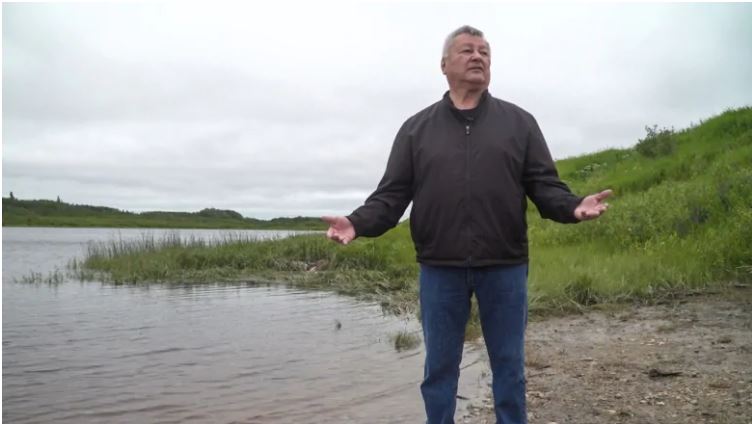The Okanagan Indian Band has completed a major upgrade to its water system. The Six Mile/Bradley Creek system has been improved by upgrading wells, expanding and updating the water treatment system, and doubling reservoir capacity. The system has also been connected to the band’s Irish Creek/Head of the Lake system, which received two new larger reservoirs and a control station. OKIB Public Works & Housing director Jolene Vincent says each reservoir has doubled its capacity, from 400 to 800 cubic square metres each. The community using the Six Mile system had been under a water advisory since May 2019 due to elevated manganese levels in its water. This meant it wasn't safe for pregnant women or children under two.
Design for a new water treatment system in Whitehorse delayed
City councillors in Whitehorse say they want more information before moving ahead with designing a $39-million upgrade to the city's water treatment system. Councillors heard last week from city staff that the upgrade would add a new filtration system — needed because the city's groundwater quality has been changing. The design itself, which councillors voted Tuesday to delay, would cost about $2 million and be done by the end of 2025.
Boil water advisory in Sachigo Lake First Nation lifted after 4 years
A boil water advisory in Sachigo Lake First Nation that had been in effect for four years was officially lifted last week. The advisory, which was upgraded to a long-term advisory in 2019, was rescinded after upgrades to the water treatment system were finished. The work included an expansion of the wastewater lagoon. Indigenous Services Minister Patty Hajdu is expected to address the matter in the House of Commons on Wednesday, “That brings us to 31 boil-water advisories left to lift nationally, 136 since we took office that have been lifted,” Hajdu said in prepared comments that were submitted to NWONewswatch.
St. Lawrence College, Queen’s partner with water treatment firm
Two post-secondary institutions in Kingston, Ont., have partnered to work on a research project. St. Lawrence College and Queen’s University will work with Purafy Clean Technologies Inc., also of Kingston, to test the efficacy of the company’s water treatment system. The system has been installed at Kate’s Rest Foundation in Prince Edward County and will tell researchers about water and energy savings.
Military faces cold weather issues as it pumps clean drinking water in Iqaluit
A flowing river that turns to solid ice in October, freezing pipes and frosty arctic temperatures are all routine for Nunavummiut. But those issues were a first for a water treatment system previously used by the Canadian Armed Forces in places, including Haiti after the 2010 earthquake and the Philippines. Iqaluit has been under a state of emergency since Oct. 12 when fuel was found in the water at the city's treatment plant. Residents have not been able to drink tap water since then.
Iqaluit’s water test results: what we know and don’t know
Graphs released last week that show what has contaminated Iqaluit’s drinking water don’t include enough information to be useful, say two University of Toronto professors. Nunavut’s chief medical health officer, Dr. Michael Patterson, presented and interpreted the graphs at an Oct. 22 news conference. They are missing key information, including labelling and actual concentrations for each compound detected, said Miriam Diamond, a professor of earth sciences at the University of Toronto. Diamond is one of two experts Nunatsiaq News asked to help interpret how the data were presented in the graphs.
Canada announces $22M in water infrastructure projects
This week, Canadian officials announced the construction of a new water treatment system in Petit-Rocher in New Brunswick, and almost $20M in funding for water infrastructure across the Yukon province. The Petit-Rocher project will see the construction of a new water treatment system that uses nano filtration, along with the expansion of the existing pump station. Additionally, a new treatment system for the filtration backwash, and connections to municipal water services, will also be built. Once completed, the site will be rehabilitated and expanded with a new parking lot to better assist with increased capacity and demand at the existing centre.
Cyberattack on Florida water treatment plant raises alarms in Canada
Pinellas County Sheriff Bob Gualtieri told a news conference Monday that someone remotely accessed a computer for the City of Oldsmar water treatment system on Friday and briefly increased the amount of sodium hydroxide, also known as lye, by a factor of more than 100. The Tampa Bay Times said the chemical is used in small amounts to control the acidity of water, but it’s also a corrosive compound commonly found in household cleaning supplies such as liquid drain cleaners.
WSP Canada Wins Award for Innovative Solution for Safe Water in Remote Communities
WSP won for its work in developing an innovative solution for safe water in remote communities. Like many remote communities, the people of the Tl’azt’en Nation in northern B.C. had no access to clean drinking water. Because conventional water treatment technology was unfeasible, WSP Canada and the RES’EAU-WaterNET partnered to develop a treatment system for organic material. The project delivered a full-scale plant that allowed a 14-year boil water advisory to be lifted. The system uses natural biological processes, is low in consumables, reduces chemical requirements, produces little waste and is simple for operators to use.
8-10 years to fix Attawapiskat water problems, chief estimates
It's been one month since Attawapiskat First Nation declared a state of emergency over its poor water quality. The measure was taken in the northern Ontario community due to high levels of trihalomethane (THMs) and haloacetic acids (HAAs) in the water the residents use for bathing and cooking. The fly-in community has a separate system for its drinking water.












